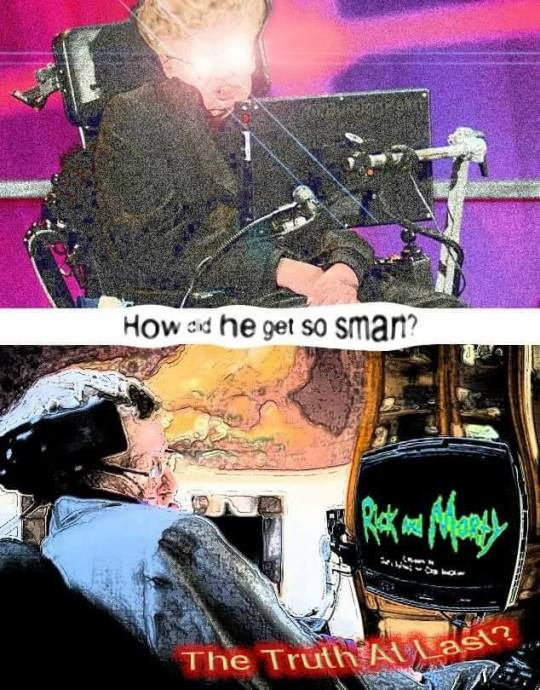Photo

Macron’s employment at Rothschild & Co. isn’t a conspiracy theory, but a fact. In the Parisian bank, Macron quickly became known as a rainmaker. His primary skill lay not in number-crunching but in reaching out to potential clients, seducing them with his charm, sharp mind, penchant for philosophical literature (he had studied philosophy in college), and keen musical gifts. (Not for nothing was Macon also known as a “Mozart of finance.”)
0 notes
Text
Let Me Explain The Curse of the Free Market
No doubt the most resonant result of the May 7 presidential election in France was the victory of the centrist liberal Emmanuel Macron.
Yet a secondary, only slightly less notable consequence was the success of National Front leader Marine Le Pen in continuing to grow her nationalist party. She is now poised to seize power in 2022 should the untested Macron prove unable in the interim to pull France out of its economic doldrums, bring down unemployment, and improve public security — all herculean tasks. Meanwhile, Le Pen will continue to do what she does best: stoke public xenophobia by making vague and lurid allusions to shadowy figures and institutions bent on controlling the world at the expense of “ordinary patriots.”
Her goal will be to portray Macron, the country’s president, as one such shadowy figure. And her chosen material will undoubtedly include Macron’s employer from 2008 to 2012, the Rothschild & Co. investment bank.
It won’t be the first time she has attempted to exploit those ties. When Macron joined President François Hollande’s cabinet in 2012 as economics minister, Le Pen told her flag-waving supporters: “Today the enemy of the French people is still the world of finance, but this time [this world] has a face, he has a name. … He is called Emmanuel Macron.” Le Pen well knew that her coupling of “the world of finance” with Macron would also evoke the Rothschilds in the minds of her backers.
She also knew it would evoke anti-Semitic imagery. Le Pen has long argued that the open racism purveyed by her father and National Front founder, Jean-Marie Le Pen, is harmful to her party’s ambitions to win power. But she has never rejected a more refined conspiracy-mongering that flirts with anti-Semitic themes. Macron’s ties to the Rothschilds, a Jewish banking family that has occupied a special place in the darkest recesses of the French public imagination, is simply too tempting for an artist of public incitement like Le Pen to pass up.
For more than two centuries the Rothschild family — a historically Jewish multinational banking dynasty that is said to have plotted every major continental war in order to finance and profit from both sides, brought on economic depressions, arranged the assassinations of U.S. presidents and European potentates, caused the Holocaust, and sponsored same-sex marriage — has been a major and virtually universal player in France’s most sinister psychodramas. The Rothschild family’s global reach notwithstanding, this bogeyman arguably has been the most active on French soil, where ancient animosities toward high finance have combined with anxieties about national status and deeply rooted anti-Semitism.
As is typical of conspiracy theories, in the Rothschild case bits of fact fuel the fiction and lend apparent credibility to the myths.
As is typical of conspiracy theories, in the Rothschild case bits of fact fuel the fiction and lend apparent credibility to the myths. Starting from humble origins in the Frankfurt, Germany, ghetto of the 1760s, the Rothschild dynasty amassed great riches, underwriting loans to various aristocratic power brokers and sovereign governments for infrastructure development, military campaigns, and sundry other necessities. Patriarch Mayer Amschel Rothschild expanded the family empire by installing his five sons in the financial centers of his native Frankfurt along with London, Paris, Vienna, and Naples. Although, like brothers the world over, the scions of Mayer Amschel sometimes quarreled and brother Nathan in London proved to be a bully, in the end the Rothschild siblings successfully subordinated their individual differences and capacities to a common sense of fraternal purpose.
In France, by the 19th century, the name “Rothschild” had become a byword for great wealth. “He must be a Rothschild!” gushes a character in Victor Hugo’s Les Misérables, a tale of an ordinary person who projects opulence by hiring a hansom cab. From 1800 to 1900, the dynasty’s financial, political, and cultural influence was such that writer Théophile Gautier could label this era “the century of the Rothschilds.” Baron James de Rothschild’s Château de Ferrières east of Paris (built in 1855-59) was hailed the most magnificent private residence in France. (When Emperor Wilhelm I of Germany visited the place in 1871 he exclaimed: “No king could afford this! It could only belong to a Rothschild.”)
The Rothschild dynasty’s financial might allowed it to fund Britain’s defeat of Napoleon’s forces in the Peninsular War and Waterloo. In 1814, King Louis 18th returned to France from English exile with British money loaned by the Rothschilds. Similarly, Louis-Philippe, king of France between 1830 and 1848, came home from British exile with financial support from the Rothschilds, who saw him as a good long-term bet. Beautiful Eugénie de Montijo, who married Emperor Napoleon III in 1853, was a friend and ally of James de Rothschild. During the bloody Paris Commune of 1871, desperate Communards raised a loan from the Rothschilds to pay off their National Guard fighters.
One could cite many other historically valid examples of Rothschild largesse and influence in France alone. But Europeans made anxious by the Rothschilds’ successes have always overlain these bare bones of fact with fantasies that have proven even more powerful than the family’s actual riches. According to the fantasists, the Rothschilds completely “controlled” Louis-Phillipe by a monopoly on loans to the sovereign. Through their “agent,” Eugénie, they also pulled the strings behind the gaudy curtain of Napoleon III’s “Second Empire,” propelling the emperor into such ill-stared adventures as his sponsorship of a Catholic empire in Mexico.
Spreading their patronage to Germany with vital assistance from Gerson Bleichröder, Otto von Bismarck’s personal financial advisor and “House Jew,” the Rothschilds made an “agent” of the Iron Chancellor, too. With their hooks likewise into France’s foreign minister, the Duke of Gramont, the dynasty worked behind the scenes to provoke the Franco-Prussian War (1870-71), which they financed. They also drafted the postwar reparations settlement imposed on France, making it so onerous that Paris had to sell the Suez Canal to Britain to pay off Germany. (Having financed the construction of the canal, the Rothschilds controlled that too, and continued to do so secretly under the British. Thus they underwrote the abortive Anglo-French-Israeli effort to seize the canal back from Egyptian president Gamel Abdel Nasser in 1956.)
As the Suez story suggests, conspiracy theorists happily see the 20th century as a continuation of the Rothschild dynasty’s campaign for global dominance. We learn from hitherto hidden sources that this sinister clan pushed Hitler into World War II and engineered the Holocaust — the latter move a tactical sacrifice necessary to generate worldwide sympathy for the Jews and make possible the creation of the state of Israel, another “Rothschild project.” Meanwhile, in their favored stomping ground of France the family cozied up to Charles de Gaulle, whose resistance operation against Nazi Germany they supported in the off-chance that he might prove victorious.
Yet they never were able to dominate de Gaulle entirely, which is why they ended up financing numerous assassination attempts on his life. They fared better with Georges Pompidou, a sometime-director of Rothschild Frères. So thorough was Rothschild control over Pompidou that under his presidency the “RF” of Republique Française actually stood for “Rothschild Frères”! Moving on to post-Pompidou times, we learn, inter alia, that a Rothschild banker was best man at Nicolas Sarkozy’s wedding to his second wife, Cecilia, and that Sarkozy’s third match with Carla Bruni was brokered by the bank. Finally, as the pièce de résistance, we have the clever insertion of faithful employee Macron into the entourage of Hollande — this in the hope that the brilliant young technocrat might one day reject the tutelage of his official minder in Paris in favor of full-time bondage to his “real” controllers back in Frankfurt, London, and New York.
Macron’s employment at Rothschild & Co. isn’t a conspiracy theory, but a fact. In the Parisian bank, Macron quickly became known as a rainmaker. His primary skill lay not in number-crunching but in reaching out to potential clients, seducing them with his charm, sharp mind, penchant for philosophical literature (he had studied philosophy in college), and keen musical gifts. (Not for nothing was Macon also known as a “Mozart of finance.”)
The Rothschild enterprise certainly profited from Macron’s presence, but it is by no means the dominant player today that it was from 1815 to 1914, when it was easily the largest bank in the world. The family fortune is now divided among dozens of descendants and is spread among holdings in financial services, farming, urban real estate, mining, energy, and wine-making. On the other hand, by remaining a traditional family company with a focus on its clients’ interests above all, and by steering clear of such dubious practices as subprime mortgage trading, it did not suffer the debilitating losses racked up by some of its global competitors.
Nonetheless, given the pervasiveness and durability of the many stories about the Rothschilds, they will continue to be fodder for populists everywhere — especially in France, a country that has always been jealous of its sovereignty. Jean-Marie Le Pen surely understood what a rich vein in the national psyche he was tapping into when, in 1992, he warned his countrymen that “a pro-Europe and anti-France banking personality” was bragging that to achieve full global dominance “he had only one more door to break down — that of the nation.” Twenty-five years later, we can be sure that Jean-Marie’s daughter Marine will spend the years ahead pointing to the Rothschild employee Macron and accusing him of being the “banking personality” incarnate.
0 notes
Conversation
Rick: *drunk burb* wubalubadubdub! support trans people on patreon!
Morty: R-rick! you can't say that!
Rick: fuck you racist nazi piece of shit xD
0 notes
Text
I mean honestly same
I know this has been pointed out to you before, but starting at 0 F is completely arbitrary. The zero value of the Fahrenheit scale has no physical significance. Why not start at 0 Rankine? At least it will have meaning, and it will look even MORE flat to serve your purpose.Today we're going to point our skeptical eye at the famous Rothschild banking family, and the multitudinous conspiracy theories surrounding them. Just about every conspiracy theory website that presumes the world's governments act in willing concert under the guidance of some secret council points the finger at the Rothschilds. We're going to take a modern-day look at this mysterious family, see who they really are and what they really do, and see exactly what evidence there is that shows that they are actually directing world affairs. Why would superpowers such as the United States, Russia, and China willing give up their sovereignty, conducting wars and exerting control over markets according to instructions from above? The answer, according to the believers, is money.
0 notes



